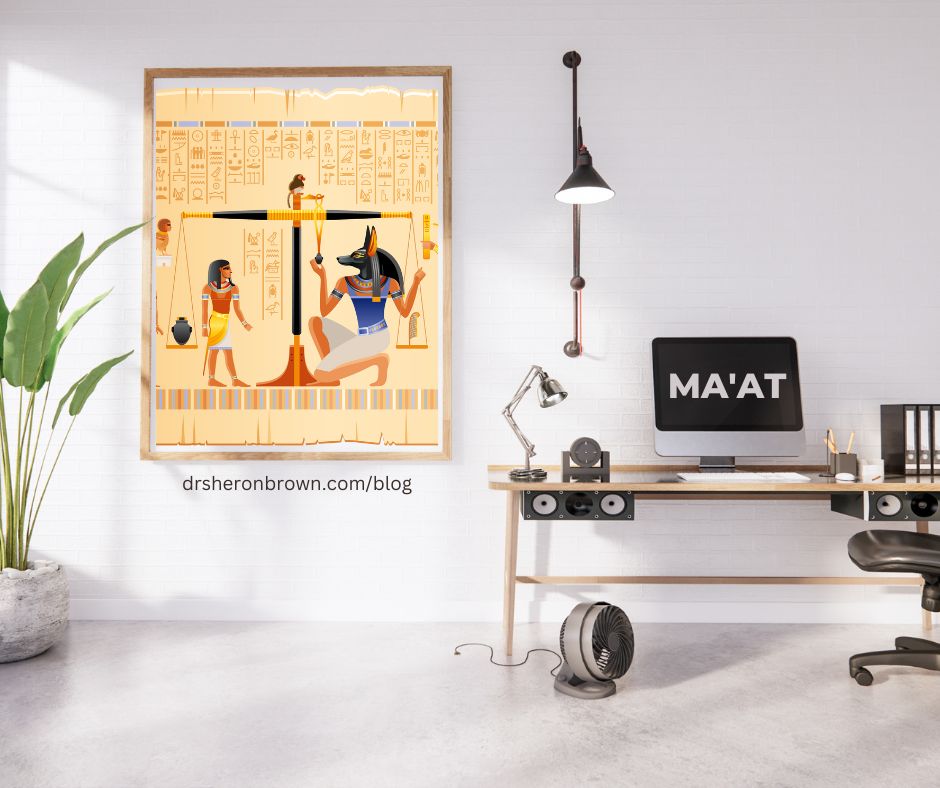Are you familiar with Ma’at? Hailing from ancient Egyptian philosophy, Ma’at represents truth, balance, order, justice, and is a principle rooted in respect, reciprocity, and equity. This invaluable concept can significantly enhance the dynamics of workplace collaboration in our contemporary setting, fostering a positive, inclusive, and equitable culture that cherishes diversity and cooperation. So, how exactly do we weave Ma’at into the fabric of collaboration? Let’s explore.

Valuing Each Voice: Respect and Active Listening
The integration of Ma’at into collaboration begins with nurturing a respectful culture that values and listens to each participant’s viewpoints. Everyone involved in collaboration brings unique strengths and experiences to the table, each capable of contributing significantly to the project’s success. Acknowledging and actively listening to all perspectives can spark innovative ideas and solutions, enhancing the outcome of the collective endeavor.
Striking Balance: Clear Goals and Defined Expectations
Balance, a key tenet of Ma’at, in a collaborative context implies having clear and fair expectations from each participant. This balance can be achieved by setting well-defined goals for the project and outlining specific roles and responsibilities for each team member. By doing so, every collaborator gets a chance to contribute meaningfully, fostering an atmosphere of mutual respect and cohesiveness.
Fostering Openness: Encouraging Communication
Ma’at underscores reciprocity, implying that communication should be open, honest, and respectful. Open channels of communication foster understanding, enhance collaboration, and lead to superior project outcomes. Creating a safe space where participants feel comfortable voicing their opinions, seeking clarifications, and sharing ideas is crucial to the process.
Ensuring Fairness: Promoting Equity and Inclusivity
Justice and fairness are integral to Ma’at, indicating that each collaborator should be treated equitably with an equal opportunity to contribute to the project. This can be achieved by fostering an environment that values and respects everyone’s unique strengths and perspectives. Vigilance towards biases and stereotypes that can impede collaboration is essential, and proactive measures to combat them must be in place.
Upholding Responsibility: Practicing Accountability
Ma’at places high importance on responsibility, making it crucial for each collaborator to be accountable for their actions and contributions. Accountability fosters trust and respect, making team members feel valued and supported. Establishing clear guidelines for accountability and providing feedback and recognition for positive contributions is essential.

Incorporating Ma’at into collaboration paves the way for a more positive, supportive, and equitable workplace culture that values respect, balance, reciprocity, equity, and accountability. As you embrace Ma’at’s principles, your collaborative efforts will thrive in an environment that encourages diversity, inclusivity, and cooperation. It’s about listening to each other’s perspectives, setting clear goals, promoting open communication, advocating equity and inclusivity, and practicing accountability. Doing so not only leads to successful project outcomes but also enhances community wellbeing. Integrating Ma’at into collaboration is indeed a powerful means to improve work quality while fostering personal wellbeing and growth.

Recent Comments